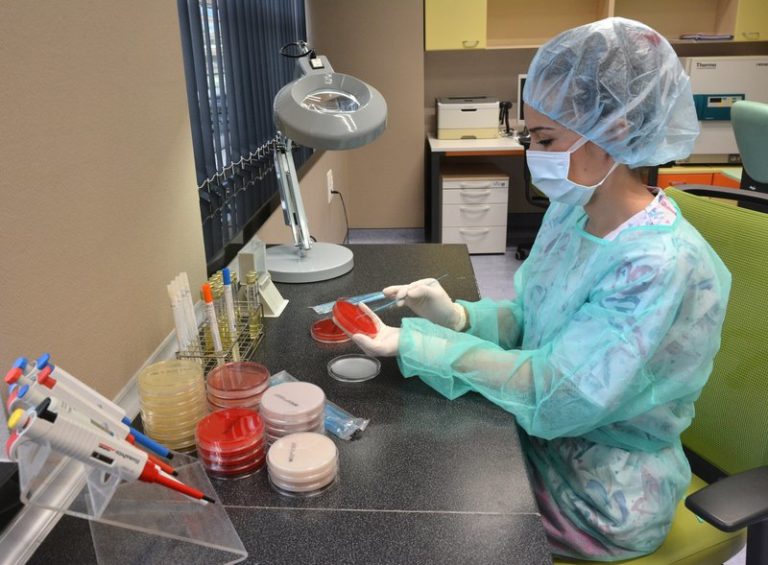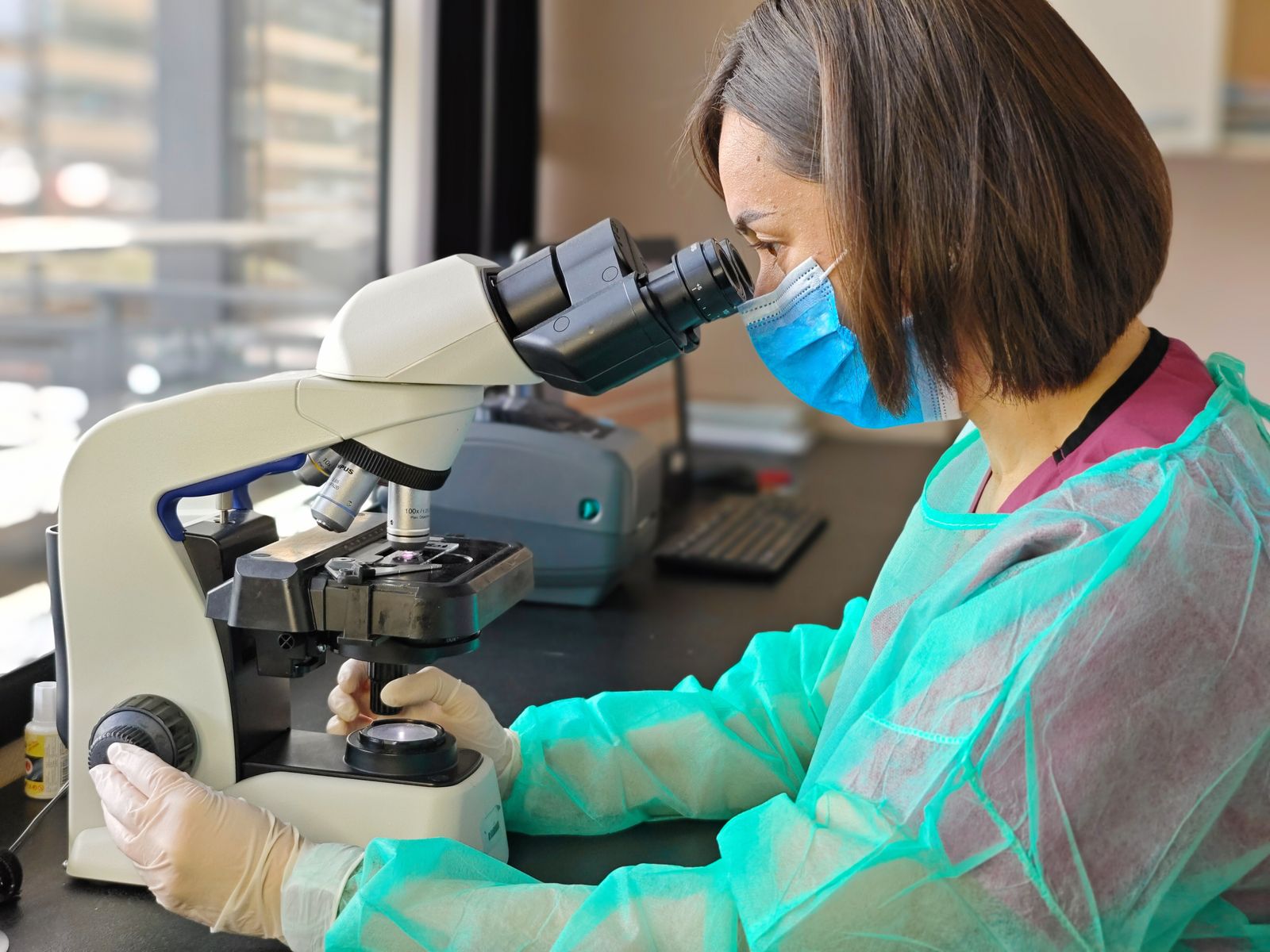 00389 2 3091 484
00389 2 3091 484
MEDICAL SERVICES
MICROBIOLOGY LABORATORY
Microbiology laboratory
The microbiology laboratory in the Zan Mitrev Clinic covers three segments of functioning: laboratory diagnostics, antimicrobial management policy and active participation in the Hospital Infections Control and Prevention Committee.
Through the integration of these three activities in the day-to-day practice of the microbiology laboratory we achieve our priority – unified, good quality, and safe healthcare and treatment of each and every patient.
The primary role of the microbiology laboratory is to provide etiological diagnosis of the infective disease and provide advice for targeted use of an antimicrobial medication.
Etiological diagnosis includes microbiologic processing of samples from upper and lower airwaves, skin and wounds, punctate, tissue pieces, samples from the gastrointestinal and urogenital tracts, hemocultures and other investigations according to the requests and needs of the clinicians.
Completely automated devices (VITEK 2Compact, BacT/ALERT) in the laboratory enable rapid and precise identification of microorganisms from various samples. The preparation and interpretation of antibiograms is according to the current European standards (EUCATS – European
Committee on Antimicrobial Susceptibility testing) combining several testing methods (disc diffusion, e-test and microdilution method) for wide range of antimicrobial substances. According to the microbiologic finding, and in correlation with the other laboratory investigations and clinical presentation of the disease, an antibiotic recommendation is given. The introduction of moder, automated devices for processing of hemocultures enables rapid, exact and reliable detection of the present microorganisms in blood, therefore saving lives.
Intrahospital Infections Committee
The Hospital Infections Control and Prevention Committee actively participates in the structure of hospital committees. The priority of this committee, through an efficient program, is to monitor all the processes in the hospital, implement the newest and safest work techniques, continuous education of the entire staff in the hospital infections area and monitoring thereof. It is evident that a well-placed infection control system, through rapid and accurate diagnostics and screening, will have an effect on the program for rational use of antibiotics as three mutually connected tools.

Antimicrobial management policy
The Microbiology laboratory in Zan Mitrev Clinic has an important role in creation of the antimicrobial management policy (rational use of antibiotics).
Proper decision making regarding the application of antibiotic therapy, selection of appropriate antibiotic, proper dosage and duration of the treatment are particularly challenging. Antimicrobial management is a multidisciplinary process that actively includes the attending physician, clinical microbiologist, clinical pharmacist and certainly an important part lays with the member of the intrahospital infection prevention and control team. The objective is implementing a regional application of day-to-day practice through a personalized approach to each patient. Good clinical practices and proactive monitoring of the local resistance on one hand and adjustment of the global and national guidelines on the other, help us to protect the antibiotics and maintain their efficiency for the future generations. Undoubtedly, the antibiotic resistance is a global problem, and the antibiotics as medications that make not only individual but also global damage require great responsibility from us in their application in order to slow the transition to the post-antibiotic era.
Intrahospital Infections Committee
The Hospital Infections Control and Prevention Committee actively participates in the structure of hospital committees.
The priority of this commission it to monitor all the processes in the hospital, according to an efficient program, implement the latest and safest work techniques, continuous education of the entire staff in the area of hospital infection and their monitoring. It is clear that a well-placed infection control system, through rapid and precise diagnostics and screening will have an effect on the program for rational use of antibiotics considering that these three tools are interdependent and mutually connected tools.



